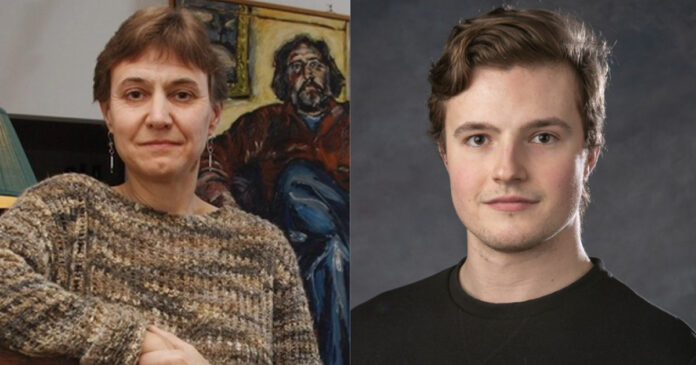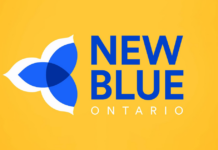A professor and student suing the University of Lethbridge (UofL) over its decision to cancel a talk on “how wokism threatens academic freedom” hope their legal action will set a pro-free speech precedent in Canadian academia.
As previously reported by True North, the Justice Centre for Constitutional Freedom (JCCF) announced last week that court action had been filed against the UofL after they cancelled a speaking event featuring Mount Royal University professor Frances Widdowson last February. Widdowson was deemed controversial due to her views on residential schools.
The university had initially approved Widdowson’s anti-woke talk, but backtracked amid two petitions, UofL’s Department of Indigenous Studies and numerous faculty members calling for its cancellation.
Widdowson opted to instead give her Feb. 1 talk in the UofL Atrium, but was met with a large group of left-wing protesters, who interfered with her ability to give the talk. She then tried to move to an adjacent area, but amid continuing to be drowned out by shouting, drumming, and chanting, she had to move the talk to Zoom.
True North spoke with two of the lawsuit’s three plaintiffs, Professor Widdowson and UofL neuroscience student Jonah Pickle.
Widdowson had said that instead of “encouraging faculty and students to engage with my ideas in order to reach a better understanding of totalitarian identity politics’ impact on the academy,” UofL “created an ‘unsafe space’ for critical thinking and open inquiry.”
Pickle, who was planning to attend the talk before it got cancelled, told True North he found the university’s decision to shut down the event for everyone to be arrogant.
“I didn’t like that from the administration. It seemed to announce that ‘we know what the truth is. and that there’s no need to debate the issue anymore.’ And to me, that’s not a function of science.”
The lawsuit’s applicants are seeking a declaration that the UofL breached their freedom of thought, belief, opinion and expression, and freedom of peaceful assembly guaranteed under the Charter of Rights and Freedom.
The court action also seeks an injunction requiring the university to allow the talk to take place on campus.
Widdowson told True North a ruling in her favour would be precedent setting because it would mean Charter rights would apply to academia. The Charter applies to governments, but not to private individuals, businesses, or other organizations.
“There’s a lot of controversy across the country as to whether the charter applies to universities or not, and there’s been resistance… by faculty associations and professors, and perhaps administrators because… you don’t really want to have the government interfering in what it is that professors should be really controlling,” explained Widdowson.
She, however, added that right now “universities are just massively failing in terms of the ability for them to meet their obligations of being academic institutions, which really require the open and honest discussion of ideas.”
As for Pickle, he does not want to “see this kind of thing happen on university campuses in the future.”
“I think that if a professor invites a guest to the school, and the professor deems that what they have is of an academic value, then any student who’s interested should be entitled to go and listen.”
Widdowson also told True North, “people need to realize that freedom of expression is not some kind of right-wing idea… (but) a fundamental aspect of our modern society that is based upon enlightenment values, the idea that as an individual you should be able to decide for yourself as to whether this idea has merit or not.”
She added that free speech “is now under serious threat [and] if this continues, we are heading down a path which is unbelievably dangerous. We will not have the kinds of abilities to enter into these kinds of discussions that we used to take for granted not that long ago.”
Back in 2019, Alberta’s UCP government mandated Alberta colleges and universities to adopt University of Chicago free speech principles, which aims to allow speakers to share their views on campuses no matter how “unwelcome, disagreeable, or even deeply offensive” they may be.
In response to the Widdowson incident in February, the UCP announced new measures mandating post-secondary institutions to provide annual free speech reporting.
However, both Widdoswson and Pickle say these measures do not go far enough, and that the event was cancelled despite UofL having a free speech policy.
Widdowson, a tenured professor at Calgary’s Mount Royal University, was fired in late 2021 with MRU president Tim Rahilly accusing her of contributing to a “toxic workplace environment,” thereby “negatively impacting the mission and reputation of the University.”
Her firing came amid her challenging prevailing Indigenous narratives and policies and criticizing Indigenization initiatives.
Widdowson has argued that Indigenous policy development over the past thirty-plus years has been manipulated by elite non-aboriginal lawyers and consultants. She has also published many pieces critiquing university indigenization initiatives, land acknowledgments, and the narrative that the unmarked graves and soil disturbances uncovered this past spring are indicative of “genocide.”
Widdowson told True North her employment process with MRU is still ongoing.
UofL told True North that it would not provide a comment as this is a legal matter.
With files from True North’s Lindsay Shepherd.






















